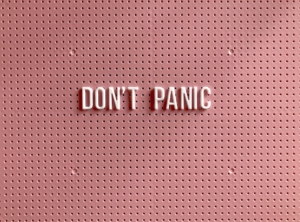Social anxiety is a type of anxiety disorder that involves fear and discomfort in social situations. People with social anxiety tend to worry excessively about being judged or evaluated by others, and as a result, they may avoid social situations or experience significant distress in them.
Symptoms of social anxiety can include rapid heartbeat, sweating, blushing, trembling, and difficulty talking. In severe cases, social anxiety can interfere with a person’s ability to work or go to school, and it can cause significant distress in relationships and other areas of life.
Causes of social anxiety.
 The exact cause of social anxiety is not known, but it is thought to be a combination of genetic, environmental, and psychological factors. For example, people who have a family history of anxiety disorders or who have experienced trauma or other negative events may be more likely to develop social anxiety.
The exact cause of social anxiety is not known, but it is thought to be a combination of genetic, environmental, and psychological factors. For example, people who have a family history of anxiety disorders or who have experienced trauma or other negative events may be more likely to develop social anxiety.
Additionally, certain personality traits, such as being shy or introverted, may increase the likelihood of developing this disorder. Social anxiety may also be related to imbalances in the brain chemicals that regulate mood and emotions.
Signs of social anxiety.
If you think you have social anxiety, it’s best to consult with a mental health professional such as a Christian counselor. But you can self-evaluate for social anxiety if you have any of these ten signs of the problem:
1. Excessive self-consciousness and self-awareness in social situations.
2. Fear of being judged or evaluated negatively by others.
3. Avoidance of social situations or activities, especially those that involve public speaking or being the center of attention.
4. Physical symptoms such as rapid heartbeat, sweating, blushing, trembling, or difficulty speaking.
5. Worrying excessively about making mistakes or embarrassing oneself in social situations.
6. Difficulty making and maintaining eye contact with others.
7. Feeling tense or anxious in anticipation of a social situation.
8. Difficulty meeting new people or starting conversations.
9. Needing to “warm up” to social situations and feeling more comfortable over time.
10. Extreme concern about how others are perceiving one.
Since social anxiety can feel overwhelming, it’s important to reach out for help if you regularly have any of these symptoms. You can get the help you need by meeting with a qualified Christian counselor.
Why it’s important to get help.
 It’s important to get help for social anxiety because left untreated, this condition can harm a person’s quality of life. People with social anxiety may avoid social situations or experience significant distress in them, which can lead to feelings of isolation and loneliness. This can lead to other mental health problems, such as depression or substance abuse.
It’s important to get help for social anxiety because left untreated, this condition can harm a person’s quality of life. People with social anxiety may avoid social situations or experience significant distress in them, which can lead to feelings of isolation and loneliness. This can lead to other mental health problems, such as depression or substance abuse.
Getting help for social anxiety can involve talking to a mental health professional, who can provide support and guidance, as well as recommend treatment options such as therapy or medication. Treatment can help people with social anxiety learn to manage their symptoms and improve their overall well-being.
Ten ways to handle social anxiety.
Here are ten ways to handle social anxiety in preparation for the next time you will be in situations that typically cause you stress.
1. Engage in regular exercise, which can help reduce anxiety and improve overall physical and mental health.
2. Practice deep breathing exercises or other relaxation techniques to help manage anxiety symptoms in the moment.
3. Challenge negative thoughts and beliefs that contribute to anxiety, and try to reframe them in a more positive light.
4. Set realistic goals for yourself in social situations, and try to gradually increase your comfort level over time.
5. Seek support from friends, family, or a mental health professional who can provide guidance and help you work through your anxiety.
6. Use positive self-talk to boost your confidence and calm your nerves in social situations.
7. Practice mindfulness, which involves paying attention to the present moment without judgment, and can help reduce anxiety.
8. Educate yourself about social anxiety and learn coping skills that can help you manage your symptoms.
9. Avoid alcohol and drugs, which can worsen anxiety and make it more difficult to cope with social situations.
10. Remember that it’s okay to say no to social invitations if you don’t feel up to them, and take care of yourself by engaging in activities that you enjoy and that help you relax.
Keep in mind that overcoming social anxiety is a process that takes time. Be kind to yourself as you work on healing alongside a counselor or therapist.
Bible verses to help when you feel socially anxious.
 Several Bible verses may be helpful for people with social anxiety. Here are a few examples:
Several Bible verses may be helpful for people with social anxiety. Here are a few examples:
I sought the Lord, and he answered me; he delivered me from all my fears. – Psalm 34:4, NIV
This verse can be very encouraging when fear rises in you. The moment that you feel anxious, turn to the Lord in prayer. Tell him about your fears and ask him to deliver you from your fears. He will give you both practical and spiritual encouragement when you need it.
So do not fear, for I am with you; do not be dismayed, for I am your God. I will strengthen you and help you; I will uphold you with my righteous right hand. – Isaiah 41:10, NIV
In moments of social anxiety, it’s comforting to know that God is sovereign over the situation that causes you stress and fear. Remember this word picture when you feel anxious around others, and take comfort knowing that God is strengthening you.
Therefore I tell you, do not worry about your life, what you will eat or drink; or about your body, what you will wear. Is not life more than food, and the body more than clothes? Look at the birds of the air; they do not sow or reap or store away in barns, and yet your heavenly Father feeds them. Are you not much more valuable than they? – Matthew 6:25-26, NIV
When you see a bird, consider these verses and remember that God is caring for you even more. He cares about what worries you. Give your worries over to him in prayer, and he’ll help you handle them with greater strength.
Do not be anxious about anything, but in every situation, by prayer and petition, with thanksgiving, present your requests to God. And the peace of God, which transcends all understanding, will guard your hearts and your minds in Christ Jesus. – Philippians 4:6-7, NIV
Instead of stewing in anxiety, use prayer to present your requests to God. Ask for what you need and thank him for helping you in the past, as well as showing gratitude for the present. Then God’s peace will guard your anxious mind.
These verses can provide comfort and encouragement to those with social anxiety and can remind you that you are not alone and that God is with you every time your anxiety flares.
Counseling for social anxiety.
 Treatment for social anxiety typically involves a combination of therapy and medication. Cognitive-Behavioral Therapy (CBT) is a type of therapy that is often used to treat this condition.
Treatment for social anxiety typically involves a combination of therapy and medication. Cognitive-Behavioral Therapy (CBT) is a type of therapy that is often used to treat this condition.
This type of therapy focuses on identifying and changing negative thoughts and beliefs that contribute to anxiety. It also involves gradually exposing the person to the situations they fear and teaching them coping skills to manage their anxiety symptoms.
Medication may also be used to treat social anxiety. The most commonly prescribed medications for this condition are Selective Serotonin Reuptake Inhibitors (SSRIs), which can help to reduce anxiety and improve mood. Other medications, such as benzodiazepines, can also be used on a short-term basis to help manage severe symptoms.
It’s important to work with a mental health professional to determine the best treatment plan. This may involve trying different therapy approaches or medications, or a combination of both, to find the treatment that works best for the individual. Reach out to us today to learn more about the treatment that will work best for you.
Photos:
“People Walking”, Courtesy of Ryoji Iwata, Unsplash.com, CC0 License; “Laughter of Friends”, Courtesy of Priscilla Du Preez, Unsplash.com, CC0 License; “Watching the Fog”, Courtesy of Mitchell Hartley, Unsplash.com, CC0 License; “Don’t Panic”, Courtesy of Tonik, Unsplash.com, CC0 License









